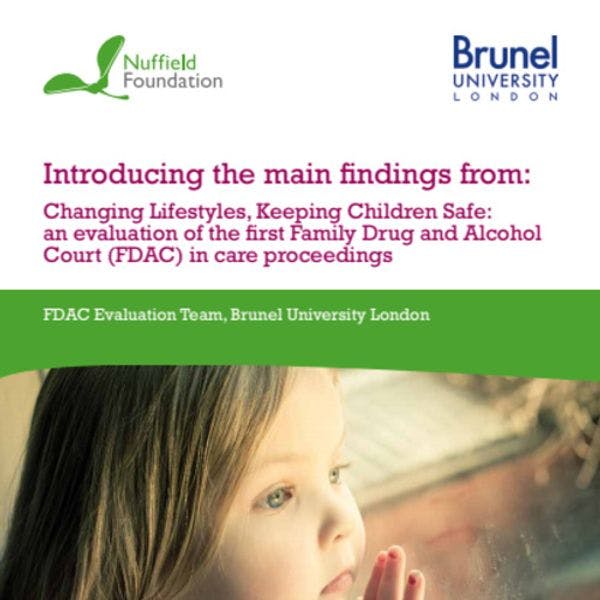Evolution des styles de vie, et sécurité des mineurs: une évaluation de la 1ère FDAC en matière d’aide sociale
Ce document présente un résumé des découvertes de l’évaluation du tribunal consacré aux affaires liées à la famille, aux stupéfiants et à l’alcool (FDAC) au Royaume-Uni.
Pour en savoir plus, veuillez lire les informations ci-dessous (en anglais).
Abonnez-vous à l'Alerte mensuelle de l'IDPC pour recevoir des informations relatives à la politique des drogues.
This briefing paper presents a summary of findings from the evaluation of the pilot Family Drug and Alcohol Court (FDAC) in the UK.
FDAC provides a problem-solving, therapeutic approach to care proceedings in cases where parental substance misuse is a key element in the local authority decision to bring proceedings. Parental substance misuse is a major risk factor for child maltreatment. It features in up to two-thirds of care applications and parents with substance misuse problems are often involved in repeat care proceedings on subsequent
children.
FDAC aims to improve outcomes for children by helping parents change the lifestyle that has put their children at risk of harm. It seeks to improve parental substance abuse cessation rates, achieve safer and more sustainable family reunification, and ensure swifter placement with permanent alternative carers when reunification is not possible.
FDAC was piloted in central London between January 2008 and March 2012. Originally funded by government departments and three local authorities (Camden, Islington and Westminster), it now runs as a consortium of five local authorities and the model is beginning to be adopted by courts and local authorities outside London.
Catalysts for the FDAC pilot were the unsatisfactory response to parental substance misuse through ordinary proceedings; poor child and parent outcomes; insufficient co-ordination between adult and children’s services; late intervention to protect children; delay in decision making; and the soaring cost of proceedings, linked to the cost of expert evidence.
The full report isavailable here.
Keep up-to-date with drug policy developments by subscribing to the IDPC Monthly Alert.
